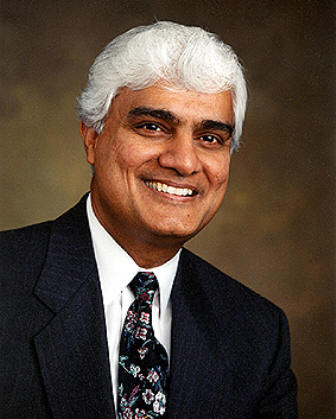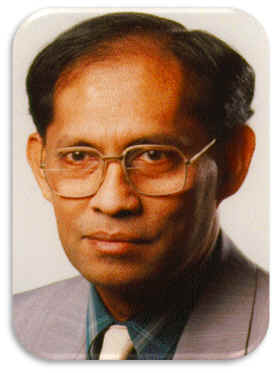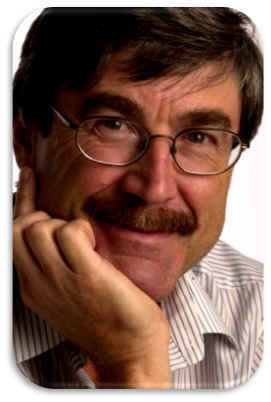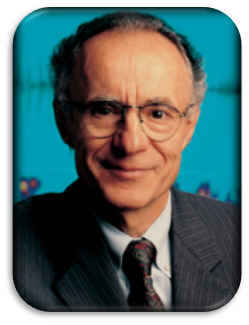Science and Faith Walking Hand in Hand?

“I do not feel obliged to believe that the same God who has endowed us with senses, reason, and intellect has intended us to forgo their use and by some other means to give us knowledge which we can attain by them.”
– Galileo
Science:
What is science? What does it take to be a real scientist or to think in a scientific manner? Does science have anything to do with religion or faith? Or, is there a distinct dividing line between science and religion?
Of course the word “science” was originally derived from the Latin word scientia, which meant “knowledge.” But what kind of knowledge is included here? And are there different ways, beyond scientific methods, of obtaining knowledge?
Most modern definitions of science, such as those one might find in a modern dictionary, include the idea that there is a building and organizing of knowledge based upon testable explanations and predictions about the physical universe in which we live. These explanations are called hypotheses, or, if more extensive in what they propose to explain, are called theories.
 The funny thing about scientific methodologies is that they are very simple in concept. One of my biochemistry professors in medical school told me once that, “Science is really nothing more than a very simple baloney detector.” There’s really nothing all too fancy about it. It is a systematic way of thinking rationally about the world in which we find ourselves and learning how to function more effectively within it. It allows one to predict the future with greater and greater accuracy based on past experience. And, we all have an innate ability to think scientifically. Even very young children, to include infants and toddlers, use forms of scientific reasoning and hypothesis testing to learn about the world around them. In short, scientific reasoning abilities seem to be a gift to humanity at large – even for those who may not be consciously aware that they are in fact carrying out mini scientific experiments on a daily basis.
The funny thing about scientific methodologies is that they are very simple in concept. One of my biochemistry professors in medical school told me once that, “Science is really nothing more than a very simple baloney detector.” There’s really nothing all too fancy about it. It is a systematic way of thinking rationally about the world in which we find ourselves and learning how to function more effectively within it. It allows one to predict the future with greater and greater accuracy based on past experience. And, we all have an innate ability to think scientifically. Even very young children, to include infants and toddlers, use forms of scientific reasoning and hypothesis testing to learn about the world around them. In short, scientific reasoning abilities seem to be a gift to humanity at large – even for those who may not be consciously aware that they are in fact carrying out mini scientific experiments on a daily basis.
Religion:
So, what about religion? How do we know that what we believe about the Bible or God or Jesus is really true? Is there a way to test our religious beliefs or faith in a scientific manner? Or, should our faith be immune from testing or even the potential of being wrong? How did we arrive at our faith position to begin with? Are we Seventh-day Adventists just because we were born into this particular faith tradition? Do we believe in the Bible as the Word of God just because that is how we were raised? What if someone were to ask one of us, “What about the Qur’an or the Book of Mormon or the Hindu Vedas? How do you know that the Bible, and not some other book or text, is the true Word of God?”
There are many within Adventism, and many other faith traditions, who claim that they know that their faith is real and that the Bible is the true Word of God based on a type of faith that needs no critical analysis or testing or rational validation. For them faith is, by definition, internally-derived and self-validating. Such are very similar in their thinking to my Latter-day Saints friends who have often told me that they have faith in the superiority of the Book of Mormon, “Because the Holy Spirit told me so and He wouldn’t lie to me.” When I ask them how the Holy Spirit speaks to them and reveals to them these truths, they say, “I feel a burning deep down in my soul, deep in my chest, whenever I hear or see or read the truth.” Some refer to this experience as a “Burning in the Bosom.” And, let me tell you, it is pretty much impossible to have any further discussion with someone who believes that God has directly communicated truth to them in this kind of privileged manner. Any attempted conversation regarding the potential for the superior credibility of the Bible is effectively over at this point.
How then do we know that we aren’t falling into the same kind of trap on our end of things? regarding our own beliefs in the credibility of the claims of the Bible? Does God not expect individual effort and study to search out truth from error? to rationally determine if the Bible is in fact what it claims to be? Does God really desire us to follow a form of blind faith, akin to wishful thinking, when it comes to our religious beliefs?
Knowledge that is Beyond Science:
 To be sure, certain types of knowledge are most certainly internally derived, independent of any need for testing or external forms of validation. For example, I like vanilla ice cream. I’ve tasted it and I like it. Do I need additional testing or peer review to support this truth or this knowledge? Of course not. This knowledge is internally-derived and is therefore outside of the realm of science.
To be sure, certain types of knowledge are most certainly internally derived, independent of any need for testing or external forms of validation. For example, I like vanilla ice cream. I’ve tasted it and I like it. Do I need additional testing or peer review to support this truth or this knowledge? Of course not. This knowledge is internally-derived and is therefore outside of the realm of science.
You see, science is only needed when there is limited or incomplete information regarding the nature of something that is external to one’s self, that exists outside of one’s internal world. For this reason, no scientific hypothesis or theory can be absolutely confirmed or proven to be true since its truth is independent of one’s self or one’s own absolute control. Science can establish various degrees of predictive value for a given hypothesis or theory, but there is no such thing as absolute confidence in science. One can approach the truth, or the Truth, but one can never gain absolute knowledge or certainty about what exists outside of one’s own mind. Such an external reality belongs to God alone and therefore can only be perfectly known by Him.
Of course, there do seem to be a few truths that God has given us as a kind of inherent knowledge. For example, the knowledge of the Royal Law of Love, the basis of all moral law and of salvation itself, is “written on the hearts” of each one of us. – James 2:8 and Romans 2:15. This Law is the essence of the very character of God for God is Love. – 1 John 4:16 Also, like vanilla ice cream, God invites us to “Taste and see that the Lord is good” – Psalms 34:8. Also, “The Spirit himself testifies with our spirit that we are God’s children.” – Romans 8:16.
While such knowledge is real, it is internally derived, being written on the heart by God. Therefore, such forms of knowledge aren’t subject to “scientific” forms of investigation since they aren’t hypothesis or theory driven. No additional “testing” is necessary to increase their “predictive value.”
The Science of Faith:
The question now is, does God reveal all truth to us in such a direct manner? Or, are there certain types of truth that God generally reveals only to those who search out and study the empirical evidence that He has provided in the world around us? For example, generally speaking, does God directly give us privileged information, regarding the origin and credibility of the Bible as the true Word of God and how, exactly, to interpret it? Or, does this type of knowledge usually require some effort, study, and hypothesis testing on our part? – with the very real potential of being wrong in any or all of our original ideas? And, should any form of scientific investigation of the empirical world have any real influence on how we read, understand, and interpret the Bible?
It is very interesting to me to note how the Biblical authors themselves viewed Scripture and how they established its credibility. Over and over again they appeal to empirical evidence and a form of scientific reasoning and rational thought and understanding to establish the credibility of Scripture in a manner calculated to attract the intelligent candid mind. The Bible quotes God Himself as asking us to come and reason with him (Isaiah 1:18) and to test His Word and His promises to see if He isn’t who He claims to be (Malachi 3:10).
 Consider, as another relevant example, the case of Jesus and his healing of the paralytic (Mark 2:1-10). The first thing Jesus said to the paralytic was, “Your sins are forgiven.” This statement angered the teachers of the law because a claim to be able to forgive sins was equivalent to claiming to be God. So, Jesus responded by asking a question:
Consider, as another relevant example, the case of Jesus and his healing of the paralytic (Mark 2:1-10). The first thing Jesus said to the paralytic was, “Your sins are forgiven.” This statement angered the teachers of the law because a claim to be able to forgive sins was equivalent to claiming to be God. So, Jesus responded by asking a question:
Which is easier: to say to the paralytic, “Your sins are forgiven,” or to say, “Get up, take your mat and walk”? But that you may know that the Son of Man has authority on earth to forgive sins, He said to the paralytic, “I tell you, get up, take your mat and go home.”
What would have happened to Jesus’ metaphysical claim to be able to forgive sins if his empirical claim to have the power to heal the paralyzed man had proved false? – if the man had just laid there paralyzed on his mat when Jesus gave the command to “get up and go home”?
You see, Jesus himself tied in the credibility of his metaphysical claim to be able to forgive sins to an empirical demonstration of Divine power. If the empirical demonstration failed, so would the credibility of his metaphysical claim.
I propose that the same is true for the credibility of the Bible. The credibility of the metaphysical claims of the Bible, claims that cannot be directed investigated or tested (such as the Virgin Birth, the raising of the dead, or our future life in Heaven to come), is based on the demonstrated credibility of those claims of the Bible that can be investigated and tested against known empirical realities (such as archeological discoveries, historical prophecies, the geologic and fossil evidence for the worldwide Noachian Flood, and the recent arrival of all life on this planet).
For instance, if Biblical prophecies concerning empirical reality can be shown to be false, not in line with what really happened, then the credibility of the Bible’s metaphysical claims would suffer as well – for most rational people anyway. The same is true for other Biblical statements concerning empirical reality, such as the recent formation of all life on Earth and a truly worldwide Noachian Flood. If such claims can be clearly falsified, Biblical credibility suffers. It is for this reason that many of those who have become convinced that the Bible does in fact contain many such errors no longer view the Bible as anything more than a good moral fable – if that.
So, in order to effectively support the claim that the Bible is truly superior to all others claiming to be “The Word of God”, the Bible must present superior evidence to support this fantastic claim – if it is to be believed by most intelligent honest-minded people, especially young people.
Dr. Ravi Zacharias:
 Consider the comments of the well-known Christian apologist Ravi Zacharias along these lines.
Consider the comments of the well-known Christian apologist Ravi Zacharias along these lines.
Ravi was asked:
What do you say to a pastor who says, “Apologetics is just philosophy, and we do not need that. All we need is the Bible.”
I desperately wish it were that simple. When pastors believe and teach, “All we need is the Bible,” they equip their young people with the very line that gets them mocked in the universities and makes them unable and even terrified to relate to their friends. If pastors want their young people to do the work of evangelism, to reach their friends, that line will not get them anywhere. Even the Bible that Christ gave us is sustained by the miracle of the Resurrection.
The Resurrection gave the Early Church the argument that Christ is risen: We saw, we witnessed, we felt, and we touched. The apostle Paul defended this gospel. He went to Athens and planted a church there. In Ephesus he defended the faith in the school of Tyrannus. We also need to become all things to all people.
If a pastor says, “All we need is the Bible,” what does he say to a man who says, “All I need is the Qur’an”? It is a solipsistic method of arguing.
The pastor is saying, “All I need is my own point of reference and nothing more than that.” Even the gospel was verified by external references. The Bible is a book of history, a book of geography, not just a book of spiritual assertions.
The fact is the resurrection from the dead was the ultimate proof that in history, and in empirically verifiable means, the Word of God was made certain. Otherwise, the experience on the Mount of Transfiguration would have been good enough. But the apostle Peter says in 2 Peter 1:19: “We have the Word of the prophets made more certain as to a light shining in a dark place.” He testified to the authority and person of Christ, and the resurrected person of Christ.
To believe, “All we need is the Bible and nothing more,” is what the monks believed in medieval times, and they resorted to monasteries. We all know the end of that story. This argument may be good enough for those who are convinced the Bible is authority. The Bible, however, is not authoritative in culture or in a world of counter-perspectives. To say that it is authoritative in these situations is to deny both how the Bible defends itself and how our young people need to defend the Bible’s sufficiency.
It is sad that some people think a person who asks, “Why the Bible?” is being dishonest. This is a legitimate question.
(Interview with Ravi Zacharias: Defending Christianity in a Secular Culture.)
 It seems to me like Dr. Ravi Zacharias, himself a convert from Hinduism, may be on to something here. A form of scientific reasoning, based on empirical evidence, was used by the Biblical authors and the disciples of Jesus to argue for the credibility of their fantastic claims. Even Jesus, on the road to Emmaus, appealed to the empirical evidence of the prophecies to convict His disciples of His own Messiahship – rather than simply revealing Himself directly to them as the risen Christ. He only revealed Himself to them, as the Risen Lord, once they had recognized the evidence for His life, death, and resurrection from prophecy (Luke 24:13-35).
It seems to me like Dr. Ravi Zacharias, himself a convert from Hinduism, may be on to something here. A form of scientific reasoning, based on empirical evidence, was used by the Biblical authors and the disciples of Jesus to argue for the credibility of their fantastic claims. Even Jesus, on the road to Emmaus, appealed to the empirical evidence of the prophecies to convict His disciples of His own Messiahship – rather than simply revealing Himself directly to them as the risen Christ. He only revealed Himself to them, as the Risen Lord, once they had recognized the evidence for His life, death, and resurrection from prophecy (Luke 24:13-35).
Mrs. Ellen White:
 For us Adventists in particular, it is also interesting to note the very similar position of Mrs. White on this topic.
For us Adventists in particular, it is also interesting to note the very similar position of Mrs. White on this topic.
God is the foundation of everything. All true science is in harmony with His works; all true education leads to obedience to His government. Science opens new wonders to our view; she soars high, and explores new depths; but she brings nothing from her research that conflicts with divine revelation. Ignorance may seek to support false views of God by appeals to science, but the book of nature and the written word shed light upon each other. We are thus led to adore the Creator and to have an intelligent trust in His word . . .
Inferences erroneously drawn from facts observed in nature have, however, led to supposed conflict between science and revelation; and in the effort to restore harmony, interpretations of Scripture have been adopted that undermine and destroy the force of the word of God. Geology has been thought to contradict the literal interpretation of the Mosaic record of the creation. Millions of years, it is claimed, were required for the evolution of the earth from chaos; and in order to accommodate the Bible to this supposed revelation of science, the days of creation are assumed to have been vast, indefinite periods, covering thousands or even millions of years . . .
The vast forests buried in the earth at the time of the Flood, and since changed to coal, form the extensive coal fields, and yield the supplies of oil that minister to our comfort and convenience today. These things, as they are brought to light, are so many witnesses mutely testifying to the truth of the word of God . . .
God designed that the discovery of these things in the earth, should establish the faith of men in inspired history. But men, with their vain reasoning, make a wrong use of these things which God designed should lead them to exalt him. They fall into the same error as did the people before the flood—those things which God gave them as a benefit, they turned into a curse, by making a wrong use of them . . .
God never asks us to believe without giving sufficient evidence upon which to base our faith. His existence, His character, the truthfulness of His word, are all established by testimony that appeals to our reason; and this testimony is abundant. Yet God has never removed the possibility of doubt. Our faith must rest upon evidence, not demonstration. Those who wish to doubt will have opportunity; while those who really desire to know the truth will find plenty of evidence on which to rest their faith . . .
Consider also that, “perfect assurance . . . is not compatible with faith. Faith rests not on certainty, but upon evidence.”
Ellen White, Patriarchs and Prophets, p. 115; Education, p. 128; Education, p. 129; Spiritual Gifts, Vol. 3, pp. 90-96; Steps to Christ, p. 105; Letter 19d, 1892, cited in The Ellen G. White 1888 Materials, pp. 1029, 1030.
The Weight of Evidence:
In other words, if faith rests upon the weight of evidence, not internally derived perfect assurance, there is a form of science to faith – of testability and investigation and growth. It seems then that Biblical faith and scientific reasoning are equals, both being dependent upon each other with neither one trumping the other. Since God is the author of both, they must both walk hand-in-hand if either is to be useful. Science does not work if one is unable or unwilling to make leaps of faith beyond that which is absolutely known or knowable. And, religious faith must also be based on the weight of empirical evidence as a platform upon which to make rational leaps into the unknown that are more useful than mere flights of fancy or wishful thinking.
Famous Scientists Discover God’s Signature:
 What is also interesting about this is that a number of famous modern scientists are starting to come to this same conclusion. They are starting to recognize God’s Signature in nature through scientific investigations, often against their own will or personal desire to avoid God. For example, consider the experience of the well-known mathematical physicist Chandra Wickramasinghe:
What is also interesting about this is that a number of famous modern scientists are starting to come to this same conclusion. They are starting to recognize God’s Signature in nature through scientific investigations, often against their own will or personal desire to avoid God. For example, consider the experience of the well-known mathematical physicist Chandra Wickramasinghe:
It is quite a shock. From my earliest training as a scientist I was very strongly brainwashed to believe that science cannot be consistent with any kind of deliberate creation. That notion has had to be very painfully shed. I am quite uncomfortable in the situation, the state of mind I now find myself in. But there is no logical way out of it. I now find myself driven to this position by logic. There is no other way in which we can understand the precise ordering of the chemicals of life except to invoke the creations on a cosmic scale. . . . We were hoping as scientists that there would be a way round our conclusion, but there isn’t.
Sir Fred Hoyle and Chandra Wickramasinghe, as quoted in “There Must Be A God,” Daily Express, Aug. 14, 1981 and Hoyle on Evolution, Nature, Nov. 12, 1981, p. 105
 As another example, there are the interesting back and forth arguments from Paul Davies, and English astrophysicist. Although he is currently a seemingly conflicted atheist (Link), he was evidently once a theist and still manages to argue strongly for what seems like a nearly overwhelming impression of design that most physicists come away with when studying the fine tuned features of the universe.
As another example, there are the interesting back and forth arguments from Paul Davies, and English astrophysicist. Although he is currently a seemingly conflicted atheist (Link), he was evidently once a theist and still manages to argue strongly for what seems like a nearly overwhelming impression of design that most physicists come away with when studying the fine tuned features of the universe.
The temptation to believe that the Universe is the product of some sort of design, a manifestation of subtle aesthetic and mathematical judgment, is overwhelming. The belief that there is “something behind it all” is one that I personally share with, I suspect, a majority of physicists. This rather diffuse feeling could, I suppose, be termed theism in its widest sense. (1)
The force of gravity must be fine-tuned to allow the universe to expand at precisely the right rate. The fact that the force of gravity just happens to be the right number with stunning accuracy is surely one of the great mysteries of cosmology…
The equations of physics have in them incredible simplicity, elegance and beauty. That in itself is sufficient to prove to me that there must be a God who is responsible for these laws and responsible for the universe. (2)
Davies, Paul C.W. [Physicist and Professor of Natural Philosophy, University of Adelaide at the time of writing], (1) “The Christian perspective of a scientist,” Review of “The way the world is,” by John Polkinghorne, New Scientist, Vol. 98, No. 1354, pp.638-639, 2 June 1983, p.638 (Link) and (2) Davies’ book, Superforce (1984).
 And, Nobel laureate Arno Penzias makes this most interesting observation about the enigmatic character of the universe:
And, Nobel laureate Arno Penzias makes this most interesting observation about the enigmatic character of the universe:
Astronomy leads us to an unique event, a universe which was created out of nothing and delicately balanced to provide exactly the conditions required to support life. In the absence of an absurdly-improbable accident, the observations of modern science seem to suggest an underlying, one might say, supernatural plan.
Arno Penzias (Nobel prize in physics)
Margenau, H and R.A. Varghese, ed. 1992. Cosmos, Bios, and Theos. La Salle, IL, Open Court, p. 83.
Fearfully and Wonderfully Made:
It seems like there are quite a number of famous scientists who are finally beginning to realize what King David discovered long ago – that, “The heavens declare the glory of God; the skies proclaim the work of his hands. Day after day they pour forth speech; night after night they display knowledge. There is no speech or language where their voice is not heard…” and, “I praise you because I am fearfully and wonderfully made; your works are wonderful, I know that full well.” – Psalms 19:1-3 & Psalms 139:14

